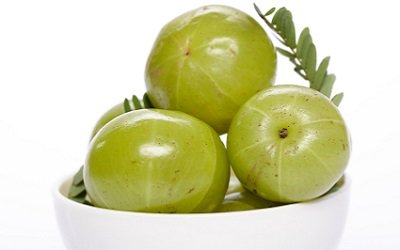Inside BENEO’s new pulse plant: pioneering sustainable protein from faba beans
A clinical study on a patented Indian gooseberry (Phyllanthus emblica) commonly known as amla, extract has showed that Indian gooseberry caused a significant decrease in platelet aggregation – a reason causing blood clots in arteries. This may be an indication that amla extract could help in cardio-vascular conditions. The study was conducted by a novel compound extracts company ‘Natreon’, a US-based company formed by Indians.
The 10-day study found that amla (500 mg twice daily) reduced platelet aggregation by over 36%, compared to 51% by Aspirin (75 mg once daily) and 50% by Clopidrogel, an antiplatelet drug (75 mg once daily). However, when Indian gooseberry was taken in conjunction with Aspirin or Clopidrogel, the inhibition of platelet aggregation increased only marginally to 56% and 53%, respectively. Bleeding and clotting times were not significantly affected by amla when used alone or in conjunction with either Clopidrogel or Aspirin.
There were also no adverse effects or bleeding events reported. An area of concern is the inhibition of platelet aggregation greater than 50% which is strongly correlated with bleeding events. Indian gooseberry alone produced only 27% and 36% inhibition of platelet aggregation in single dose and multiple dose studies respectively, compared to 47% and 50% for Clopidrogel and 46% and 51% for Aspirin.
This study was a randomized open label crossover study that included 10 patients with type II diabetes. Patients were evaluated both after a single dose and then with multiple doses over a 10-day period. In the single dose study, the patients were given either a dose of 500 mg of Indian gooseberry or 75 mg Clopidogrel or 75 mg Ecosprin (enteric-coated aspirin). The combination doses were 500 mg Indian gooseberry with 75 mg Clopidogrel or 500 mg Indian gooseberry with 75 mg Ecosprin. After the single dose study and wash out period, patients received the combinations for 10 days. Platelet aggregation was measured at baseline and at four hours after treatment. Bleeding and clotting times were also recorded.
“The results illustrate how Indian gooseberry may provide benefits for healthy blood circulation and heart health through reduced platelet aggregation,” said Dr Sanni Raju, chairman and CEO of Natreon. “The study was done in type 2 diabetes patients that are at a higher risk for abnormal platelet function. We’re very pleased with the positive results and with growing scientific support for Indian gooseberry, we’re excited about the heart health benefits it offers to dietary supplement manufacturers seeking to introduce new products or differentiate existing brands in the category,” said Dr Raju.

